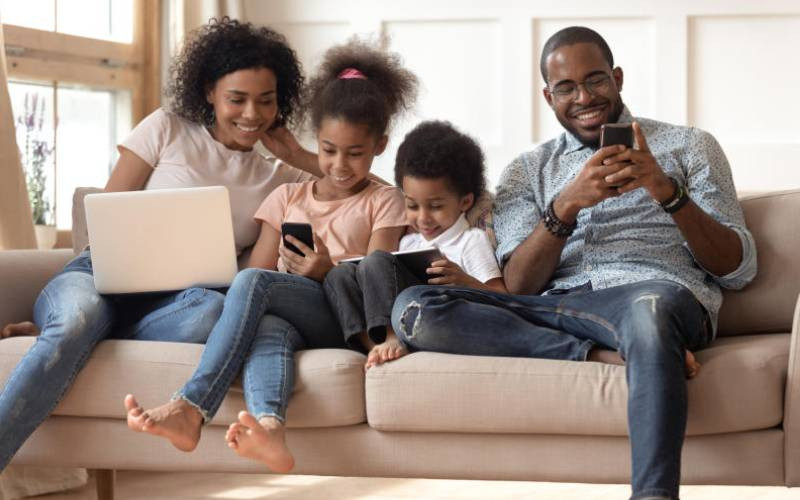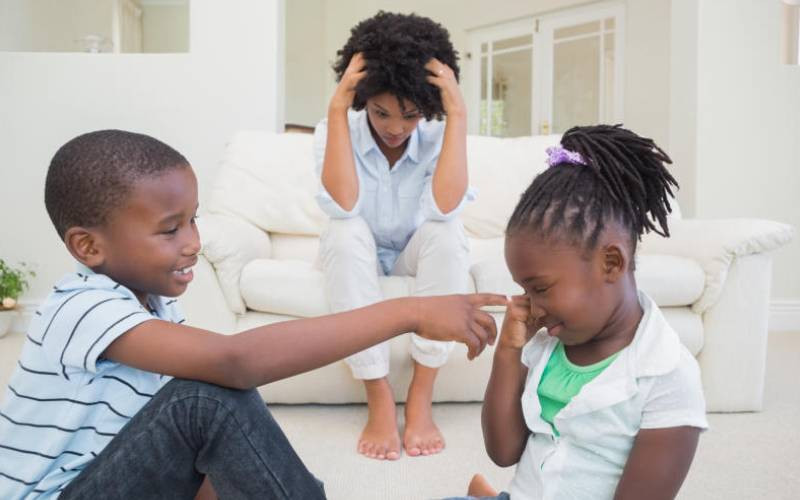
Do you discuss sex with the young adults in your house? A new study explores that debate and offers useful insights. The study titled Parental Television Co-viewing on Sexual Initiation among the Youth shows that watching television with minors can delay their initiation into sex.
The paper which addresses trends of television viewing of parents and their young adults at home, won an award for best oral presentation at the just-concluded Kenya Medical Research Institute annual scientific and health conference in Nairobi.
Delving into the findings, Dr Sammy Baya noted that from television viewing, young viewers absorb values that encourage early sex debut.
To ensure they delay this, it should be monitored by parents and their value concerns urgently addressed in honest discussions.
“Watching television with your teens and adolescents opens up communication lines to issues and concerns they may have on sexual matters,” Dr Baya said.
Television viewing among the youth is so pervasive with many watching it with or without input from adults, the researcher noted.
“Youth have access to television and that they spend many hours within the week watching it and majority of the programmes they watch have sexual content,” the study says.
The study points out that co-viewing (parents and children watching television together) helps the adults broach those difficult sex talks they dread having. “Parents are hesitant to confront the possibility that their children are involved in premarital sex and thus conveniently keep off such talk,” Dr Baya noted.
The researcher revealed that most teens supplement the little information they have on sexuality through television programmes and peer conversations.
Dr Baya observed that by watching television with their children, parents are key agents in shaping adolescents’ sexual outcomes and thus should be encouraged to instill values in the young minds.
The researcher also found out that restricting television viewing entirely could increase the attractiveness of sexual content and thus the teens and adolescents would venture beyond out of curiosity.
This study found out that 43.3 per cent of the respondents watch TV every day with their parents or guardians, while 17 per cent do that most days with their parents or guardians.
Twenty five per cent watch it with their parents or guardians less often and 11.8 per cent never watch TV with their parents or guardians.
Counseling psychologist Loice Noo Okello acknowledged that whereas some of the programmes show explicit sexual content, the trend is damaging because the teens ape such behaviours.
Noo said whereas most parents shy away from discussing sexual matters, there are other avenues through which this can be addressed to ensure the information they receive is accurate and helpful.
“As parents, we need to create opportunities where these young adults can get information on sex. This can be through religious programmes, guided camps run by trusted mentors, or even uncles and aunties in the family whom they feel at ease with,” she said.
She added that some children deliberately keep off sex talks because they find it embarrassing to discuss such topics with their parents.
 The Standard Group Plc is a multi-media organization with investments in media platforms spanning newspaper print
operations, television, radio broadcasting, digital and online services. The Standard Group is recognized as a
leading multi-media house in Kenya with a key influence in matters of national and international interest.
The Standard Group Plc is a multi-media organization with investments in media platforms spanning newspaper print
operations, television, radio broadcasting, digital and online services. The Standard Group is recognized as a
leading multi-media house in Kenya with a key influence in matters of national and international interest.










